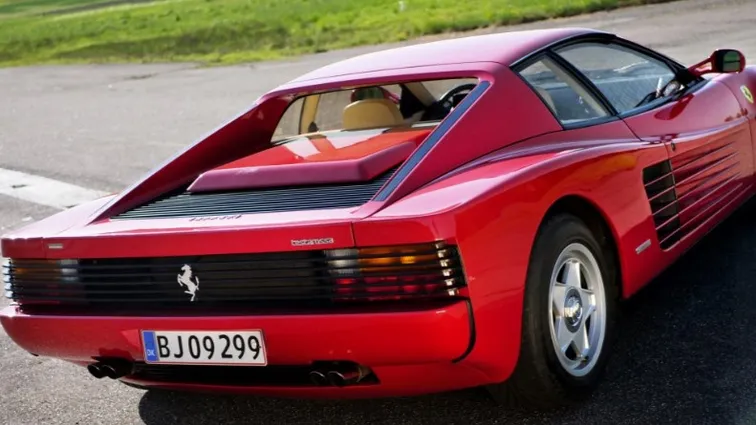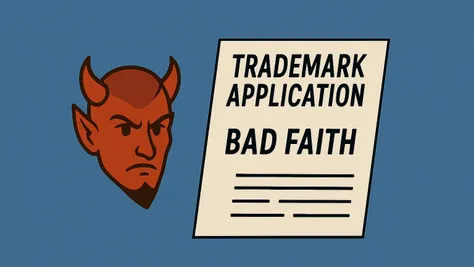The General Court upheld Ferrari’s rights in the TESTAROSSA trademark and ruled that its use in connection with second-hand cars and replacement parts constituted genuine use, even though Ferrari has not produced new vehicles under the trademark for many years.
The decision sets an important precedent for established brands and shows that trademarks can remain valid even for vintage or collectible products as long as the brand remains actively present on the market.
WHAT PRECEDED THE DECISION
On 17 October 2006, Ferrari filed an application for international registration of “TESTAROSSA” trademark designating the European Union. More than a year later, the mark was registered for land motor vehicles, automobiles, their structural and replacement parts, components and accessories, brakes, engines and others.
In 2015, a third party filed an application for revocation of the TESTAROSSA trademark on the grounds of non-use. The EUIPO revoked the trademark, except for the category “automobiles”. Following an appeal by both parties, the Board of Appeal of the EUIPO revoked the mark in its entirety as it did not find that it was still in use.
Ferrari subsequently brought an action before the General Court.
THE GENERAL COURT’S RULING
It follows from the legal regulation that if the proprietor of a trademark has not put the trademark to genuine use for the goods or services for which it is registered for a continuous period of five years, the Office may revoke the trademark on an application of a third party.
It was undisputed that the TESTAROSSA models were sold between 1984 and 1996 and that, therefore, no new vehicles were produced or marketed under the trademark during the relevant period (2010 to 2015). It was also apparent that during the relevant period, second-hand TESTAROSSA cars were offered for sale through dealers and distributors in Italy, Germany, Belgium, France, and Spain.
The key question was therefore whether the sale of second-hand cars through authorised dealers could be considered a genuine use of the trademark.
Second-hand cars
Although Ferrari has not presented a licence agreement or other evidence of express consent to the use of the TESTAROSSA trademark by second-hand car dealers and distributors, Ferrari argued that this consent was implied. This was supported with invoices from authorised dealers labelled as “Authorised Ferrari Dealer” or “Contractual Partner of Ferrari”, demonstrating their contractual and economic links to the brand.
The General Court confirmed that if there is a demonstrable economic or contractual link between the manufacturer and the distributor, the use of the trademark by the distributor could be considered as use with the consent of the proprietor, even if it is not expressly granted. This principle applies similarly to cases where a manufacturer’s trademark is used by an authorised distributor/dealer, since the authorisation itself implies a presumption of consent to its use in the course of its economic activities.
In addition, it is common in the automotive industry for vehicles to be marketed under two trademarks - one designating the manufacturer, the other designating the specific model. These brands are so closely linked that there is a general expectation that an authorised Ferrari dealer is authorised to sell all Ferrari models (i.e., including TESTAROSSA models).
In addition, the TESTAROSSA cars are vintage collectible luxury high-end models. If such a car is sold by a dealer or distributor who is authorised by the trademark proprietor, this may be an indicator of its commercial origin and an assurance to customers that the maintenance of the vehicle and any replacement of its parts and accessories have not been carried out in a way that would undermine its commercial origin.
The General Court therefore found the conclusion of the Board of Appeal of the EUIPO to be incorrect and held that the sale of vehicles bearing the TESTAROSSA trademark through authorised dealers was a genuine use of the trademark with the consent of Ferrari.
Ferrari’s other argument was that Ferrari provided certification services to certify the authenticity of cars bearing the TESTAROSSA trademark. The certificate of authenticity served to reassure customers of the car’s origin and increase its value.
The General Court recalled that use of a trademark for services directly related to the goods in question, provided that those services meet the needs of customers, may also be considered genuine use of a trademark. This condition was met in this case – the certification concerned TESTAROSSA cars and was provided in connection with their sale by authorised dealers.
The General Court therefore concluded that the provision of certification services constituted a genuine use of the trademark. At the same time, because Ferrari derived a direct economic benefit from the provision of certification services, the EUIPO’s claim that Ferrari remained passive during the relevant period was refuted.
Replacement parts
During the relevant period, authorised dealers also sold replacement parts and accessories for vehicles under the TESTAROSSA mark.
The General Court confirmed that the use of a trademark by the proprietor or with his consent for replacement parts which form an integral part of the products may constitute genuine use of the mark for the products themselves. It is not decisive whether the mark is registered separately for the product and for its parts – use for one may be sufficient for the other.
A mark registered for a category of goods and its replacement parts is therefore deemed to be used for the whole category unless the consumer perceives the products as a separate subcategory, which was not the case here. The Board of Appeal of the EUIPO erroneously based its conclusions solely on the disproportion in economic value between the spare parts and automobiles, although it is the purpose and intended use of the product that is vital in determining whether it is a separate subcategory of goods.
Thus, the General Court confirmed that the use of the TESTAROSSA trademark for spare parts can prove genuine use also for vehicles to which those parts belong.
CONCLUSION
According to the General Court, the use of the TESTAROSSA trademark by Ferrari’s authorised dealers, even without Ferrari’s express written consent, constitutes legitimate use of the trademark. Thus, proof of use of a trademark prevents it from being revoked on the grounds of non-use.
It is advisable for trademark proprietors to expressly stipulate in their contracts with dealers or distributors that they authorise them to use not only the main trademark but also trademarks of individual models. This can prevent situations where it would be necessary to prove the implied (tacit) consent of the proprietor of the trademark to its use. At the same time, this strengthens the evidentiary position in proving the genuine use of the trademark.








